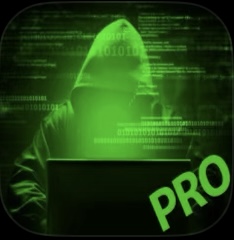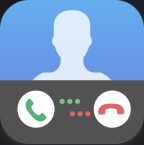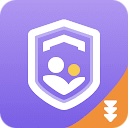The Rise of Hacker Prank Apps: Fun, Fear, and the Fine Line Between the Two
In today’s app-saturated world, where entertainment meets innovation at every corner, one genre that’s carved a quirky little niche for itself is the “hacker prank app.” Designed to simulate hacking activities in a playful, exaggerated way, these apps have grown increasingly popular among teenagers, tech enthusiasts, and even prank-loving adults. But while they’re often downloaded in the name of harmless fun, hacker prank apps straddle a complicated boundary between humor, misinformation, and ethics.
What Is a Hacker Prank App?
A hacker prank app is a mobile or desktop application that mimics the look and behavior of hacking software. This can include simulated terminal screens, fake data breaches, fake password cracking, matrix-style animations, and other high-drama effects designed to create the illusion of hacking into networks, computers, or accounts.
These apps do not perform any real hacking or data retrieval—they simply create a convincing display that tricks people into thinking something serious is happening. Their appeal lies largely in how realistic they can appear, especially to those unfamiliar with actual hacking or computer systems.
Common features in these apps include:
- Fake command-line interfaces that auto-type gibberish or pre-scripted code.
- Simulated virus alerts with loud alarms and flashing warnings.
- “Hack your friend’s phone” tools that appear to pull personal info but are in fact just using local data or scripted responses.
- Prank fingerprint scanners or face ID hacks, which often just respond randomly.
Apps like “HackBot,” “Terminal Hacker Simulator,” “Hacker Typer,” and “WiFi Hacker Prank” are among the more well-known prank apps on Android and iOS platforms.
Why Are They So Popular?
The allure of hacker prank apps can be tied to pop culture and our collective fascination with the mysterious world of hackers. Movies like The Matrix, Mr. Robot, and Hackers have romanticized the image of the lone genius coder who can bring down systems with a few keystrokes. These apps give users a bite-sized taste of that fantasy, offering an ego boost, a laugh, or a prank opportunity.
There’s also the element of social fun. Many users deploy these apps to prank friends, pretending to hack into their social media accounts or personal files, only to reveal that it was all a joke. YouTube and TikTok are filled with videos of these pranks, some genuinely hilarious, others pushing the boundaries of comfort.
For younger audiences, particularly teens who are naturally curious about tech and rebellion, these apps offer a playful introduction to the world of coding and cybersecurity, albeit in an extremely dramatized form.
Where’s the Harm?
At first glance, hacker prank apps seem mostly harmless. But as with most things digital, it’s all fun and games until someone takes it too far. The potential issues include:
1. Spreading Misinformation
Most of these apps reinforce a very inaccurate portrayal of hacking. Real-world hacking is rarely flashy—it involves research, scripting, social engineering, and technical knowledge. Prank apps suggest that hacking is quick, easy, and cool, which may lead to a false understanding of cybersecurity and even encourage some to try the real thing without understanding the consequences.
2. Creating Panic
Some apps are so realistic that they’ve caused genuine panic among victims. A prank that mimics a phone being wiped or a fake bank account hack could trigger anxiety or even legal consequences if someone believes a real crime is happening.
3. Misuse and Bullying
In the wrong hands, prank apps can be used to bully or intimidate others. A prank that’s funny to one person may feel like a violation or threat to another, especially if there’s a power imbalance (like a student pranking another student at school).
4. Security Risks
While most prank apps don’t perform actual hacking, some have been found to collect user data or display malicious ads. Ironically, some “fake” hacker apps have been real threats in disguise, hiding malware or spyware behind the guise of a joke. Downloading such apps from unofficial sources can compromise a device’s security.
The Ethical Question
Pranks, by nature, live on the edge of consent. When both parties laugh, it’s fun. When only one person is laughing, it becomes problematic. Hacker prank apps sit at this junction—they’re fine if used among consenting friends who are in on the joke, but they can be unethical or harmful when used to scare, deceive, or manipulate people.
There’s also an ethical concern around normalizing the glamorization of hacking. With cybercrime on the rise—ransomware, phishing scams, data breaches—trivializing the act of hacking as just a prank may desensitize people to the real damage it causes.
The Silver Lining: Sparking Interest in Cybersecurity
On the flip side, there’s a small silver lining. For some users, especially teenagers, these prank apps may be a gateway to genuine interest in tech and cybersecurity. A prank app could ignite curiosity that leads someone to learn about coding, ethical hacking, and how to protect digital systems.
Some educators and tech mentors have even leveraged the popularity of hacker prank apps to teach basic programming logic. After all, if someone is impressed by a fake terminal output, showing them how a real script works can be the next step.
How to Use Hacker Prank Apps Responsibly
If you’re interested in downloading one of these apps or using it for a good laugh, here are some guidelines to keep it responsible:
- Always disclose the prank quickly. Don’t let someone sit in fear believing they’ve been hacked.
- Avoid personal or sensitive contexts. Don’t use these apps to simulate hacking into someone’s private life.
- Use well-reviewed apps from trusted sources. Avoid APKs or third-party apps that might carry malware.
- Don’t prank people with anxiety or PTSD. What’s funny to one person may be traumatic to another.
- Frame it as satire. Make it clear it’s a parody or joke, especially if you post prank videos online.
Final Thoughts
Hacker prank apps are a strange mix of humor, nostalgia, and digital mischief. They appeal to our inner trickster and our curiosity about hacking culture. But like all tools, their value and impact depend on how they’re used. With a little self-awareness and ethical restraint, these apps can remain what they were meant to be—fun, fictional, and fleeting.



